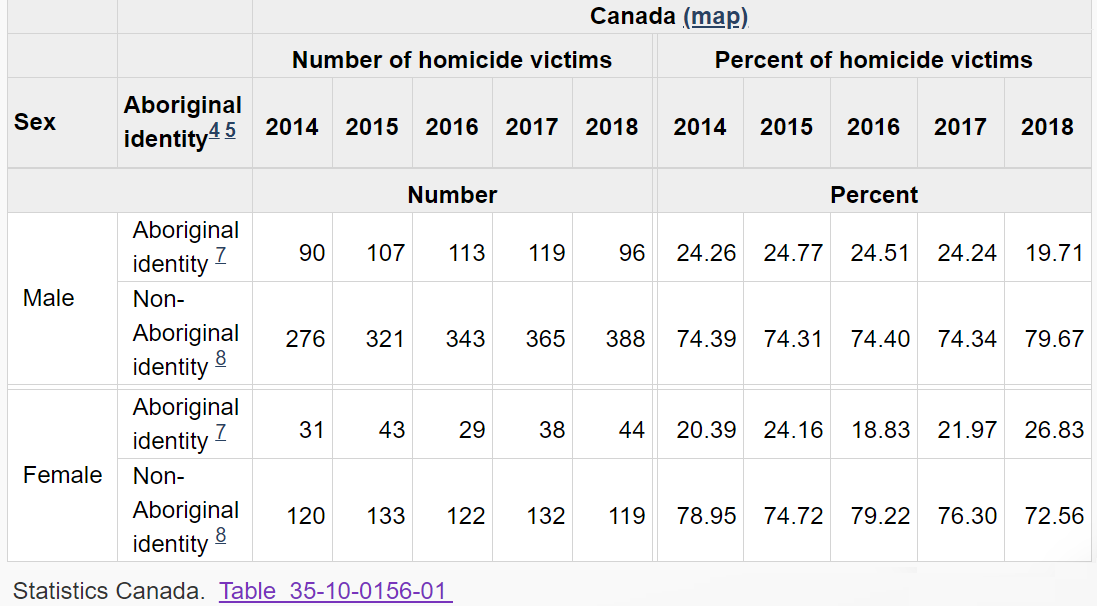I would be curious to see stats on how likely a non-Native person is to be assaulted/killed by a Native (per capita) vs non-Natives.
Natives in Canada are grossly overrepresented in violence against both Natives and non-Natives. And I am going largely by what I have seen and experienced myself. And Natives are victims more often because they are around other Natives more often.
Yeah, that seems like a really levelheaded approach to to try and assess where we need to put our focus to solve the problem. Stats like that, and ones that show the ways in which these communities interact, should likely be front and center at any discussion of where, and what type, of resources need to be deployed to help with this. Good luck on that though.
The dialogue is definitely slanted, to the detriment of actually having an open and honest conversation about this, in Canada, and that isn't going to help getting the issues solved. There is zero question that the Canadian government, white-settler populations, etc, have a ton to answer for in this area, and I'm glad we are increasingly having that discussion. In my own workplace (reflective of major institutions all across Canada) I see *tremendous* resources (money, man hours, special spaces, programs, funding, special job openings, recognitions, radical shifts in curriculums and program requirements, etc etc) being devoted towards increasing Indigenous opportunity, so I have trouble doing anything but rolling my eyes when I see the claims about nothing substantive being done. They are utter poppycock - though I'm certainly open to claims that more needs to be done, or different things need to be done.
That being said, for all the talk about people "Wanting to have the hard conversations" you can't help but notice that the response is oftentimes hostility and defensiveness when someone says "
So, who is actually making this violence happen - should we look there to help fix the problem?" (that was
@Bald1 's original comment, I think). Turns out the "hard conversations" they want to have are lectures, and those lectures are only supposed to go one way - and for all the talk of the target audience's fragility, even the slightest pushback is met with, as stated above, hostility and defensiveness. Having the "hard conservation" has basically become a synonym for having a one-way conversation.
But yeah, for a snapshot of how honest we are about the conversation around this in Canada?
"
A Calgary indigenous woman who knocked out a Caucasian woman’s tooth while yelling “I hate white people,” didn’t commit a racially motivated crime, a judge says.
...
“There is no evidence either way about what the offender meant or whether . . . she holds or promotes an ideology which would explain why this assault was aimed at this victim,” he (the judge) said.
“I am not satisfied beyond a reasonable doubt that this offence was, even in part, motivated by racial bias.”"
Indigenous woman yells 'I hate white people' while punching caucasian, but it's not a hate crime: Judge | National Post
That's how honest we are about this shit in Canada.


